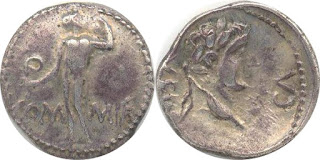Publius Cornelius Tacitus
One Of The Greatest Roman Historians
One Of The Greatest Roman Historians
Tacitus
was a Roman historian, politician and orator who was born in the year
56AD in northern Italy (Cisalpine Gaul) or, more probably, in
southern Gaul (Gallia Narbonensis (south-eastern France)). He was
possibly born into an aristocratic family but there is no proof of
this. He had a good education where he studied rhetoric, the art of
speaking in public and law which prepared him for an administrative
post. In the year 77, he married the daughter of the Govenor of
Britain Gnaeus Julius Agricola, who was one Rome's most distinguished
generals for his successful British campaigns. He studied whilst in
the final years of Emperor Nero and the Year of the Four Emperors
and also lived during the reigns of Vespasian, Titus, Domitian, Nerva
and Trajan.
Agricola and Germania
"#ad" Get the book USA at https://amzn.to/3PQxsIR
"#ad" Get this
book UK at https://amzn.to/3iWfO4j
The
Agricola is both a
portrait of Julius Agricola - the most famous governor of Roman
Britain and Tacitus' well-loved and respected father-in-law - and the
first detailed account of Britain that has come down to us. It offers
fascinating descriptions of the geography, climate and peoples of the
country, and a succinct account of the early stages of the Roman
occupation, nearly fatally undermined by Boudicca's revolt in AD 61
but consolidated by campaigns that took Agricola as far as Anglesey
and northern Scotland. The warlike German tribes are the focus of
Tacitus' attention in the Germania,
which, like the Agricola,
often compares the behaviour of 'barbarian' peoples favourably with
the decadence and corruption of Imperial Rome.
In
81 or 82 Tacitus became Quaestor
which is a Roman magistrate which
gave him entry to the Senate. Between 89 to 93 he was promoted to
praetor which included the command of a legion or governorship of a
province. Tacitus was a good friend of Pliny the Younger.
In AD68
Nero's suicide marked the end of the first dynasty of imperial Rome.
The following year was one of drama and danger, though not of chaos.
The
Histories
"#ad" Get the book USA at https://amzn.to/3K4IHxr
"#ad" Get this
book at https://amzn.to/32UGKeR
In the
surviving books of his Histories the barrister-historian Tacitus,
writing some thirty years after the events he describes, gives us a
detailed account based on excellent authorities. In the 'long but
single year' of revolution four emperors emerge in succession: Galba,
Otho, Vitellius and Vespasian - who established the Flavian dynasty.
Tacitus
was lucky enough to live in the Silver Age of Latin literature and is
thought to be one of the greatest Roman historians. He is famous for
his works especially for the Histories
and Annals
covering the Julio-Claudians upto Domitian and his other surviving
works include Agricola,
Germania and Dialogue on
Oratory. He died around 120AD at the age of 64.
Annals
"#ad" Get this
book UK at https://amzn.to/3cnycAk
A
compelling new translation of Tacitus' Annals, one of the greatest
accounts of ancient Rome, by Cynthia Damon.
Tacitus'
Annals recounts the major historical events from the years shortly
before the death of Augustus to the death of Nero in AD 68. With
clarity and vivid intensity Tacitus describes the reign of terror
under the corrupt Tiberius, the great fire of Rome during the time of
Nero and the wars, poisonings, scandals, conspiracies and murders
that were part of imperial life. Despite his claim that the Annals
were written objectively, Tacitus' account is sharply critical of the
emperors' excesses and fearful for the future of imperial Rome, while
also filled with a longing for its past glories.
Follow Roman History on X @romanhistory1 or https://x.com/romanhistory1







